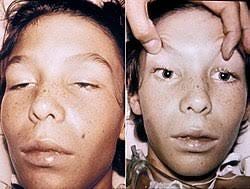Come close, please.
A little closer.
A little more.
Okay. Good.
Why are you warming spoilt food? The smell and colour have changed, you can even see the slime, but why do you think heating it up will make it safer to eat?
We're not even judging you. We get it; you don't like wasting food, but would you rather land in the hospital than throw out that small leftover that could actually kill you?
You may have gotten away with it before.
But food poisoning is like that friend who smiles with you and stabs you when you’re not looking.
You never know which bite will break you.
Some microorganisms found in decaying food are resistant to heat. They’ll remain harmful, even if you try to reheat the food. So, stop taking risks that put your health on the line.
By the time we’re done here, may you feel guilty (and terrified!) to your bones the next time you try to salvage spoilt food. So guilty, you’ll throw it out without thinking twice. Amen.
Today, we’re talking about food poisoning, also known as food-borne illness.
What is Food Poisoning?
Food poisoning is an acute disease caused by the consumption of contaminated, spoiled, or toxic foods due to poor hygiene, improper packaging, or consumer ignorance. The major sources of food poisoning are viruses, bacteria, and parasites.
Reports show that Asia and sub-Saharan Africa have the highest number of food poisoning-related illnesses, and in Nigeria, about 200,000 deaths occur annually due to food poisoning.
To put it plainly, food poisoning is an illness you get from eating or drinking unsafe food or water.
What Causes Food Poisoning?
(If you'd love some medical jargon to bamboozle your friends the next time you meet, we got you.)
Here are the top seven microorganisms responsible for food poisoning:
- Clostridium botulinum (think paralysis, not just stomach aches)
- Escherichia coli (E. coli)
- Staphylococcus aureus
- Bacillus cereus (the king of spoilt rice and pasta)
- Shigella spp.
- Norovirus
- Campylobacter (common in raw/improperly cooked meat and unpasteurized milk)
How Can Your Food Get Contaminated with Clostridium botulinum?
- Storing home-canned foods improperly.
For example, homemade herb-infused oils and DIY canned food items.
The microorganism often found in these foods is Clostridium botulinum, which causes a deadly infection known as Botulism.
Store-bought canned foods can also be affected.
Properly store canned items by refrigerating them and don’t keep homemade canned foods or opened cans for longer than 2-3 days.
What Is Botulism?
Botulism is a rare but life-threatening illness caused by a toxin that attacks the body’s nerves and leads to paralysis. This toxin can cause paralysis starting from the face and eyes, and it can spread to the lungs, making it hard to breathe normally.
Botulism is not your everyday stomach upset. It is a medical emergency that can lead to death if not treated promptly.
Signs and Symptoms of Botulism
Symptoms typically appear as early as 6 hours to as late as 10 days after consuming contaminated food. They include;
1. Drooping eyelids
2. Blurred or double vision
3. Dry mouth
4. Difficulty swallowing or speaking
5. Facial weakness
6. Muscle weakness in the neck and arms
7. Paralysis of the respiratory muscles
8. Breathing problems (which can lead to death if untreated)
How Can You Identify Food Contaminated with C. botulinum?
The scary thing about botulism is that you cannot always smell or taste the toxin. The food might look and smell perfectly normal.
However, here is a common warning sign:
- Swollen, bulging, or leaking cans or containers
Please, throw out that swollen sachet of tomato paste!
The golden rule for food safety is: if in doubt, throw it out. Do not taste food to check if it’s safe.
Don't say, “it can't be that bad.”
If it leaves you questioning, it is that bad.
Take the Oath
Place your right hand on your chest and raise your left hand.
Now, say after us:
“It doesn’t matter how delicious the food was.
It doesn’t matter how broke I get.
If anything looks, smells, or feels off, I’m throwing it out.
My stomach is not a war zone.
So help me God.
Amen.”
In the coming weeks, we’ll talk more about food poisoning and what to do if you accidentally get food poisoning, maybe from eating out or trying to save some leftover fried rice.
Make sure to subscribe so you don't miss out.
See you then!







Thank you for sharing!🥹
Thanks for sharing👌